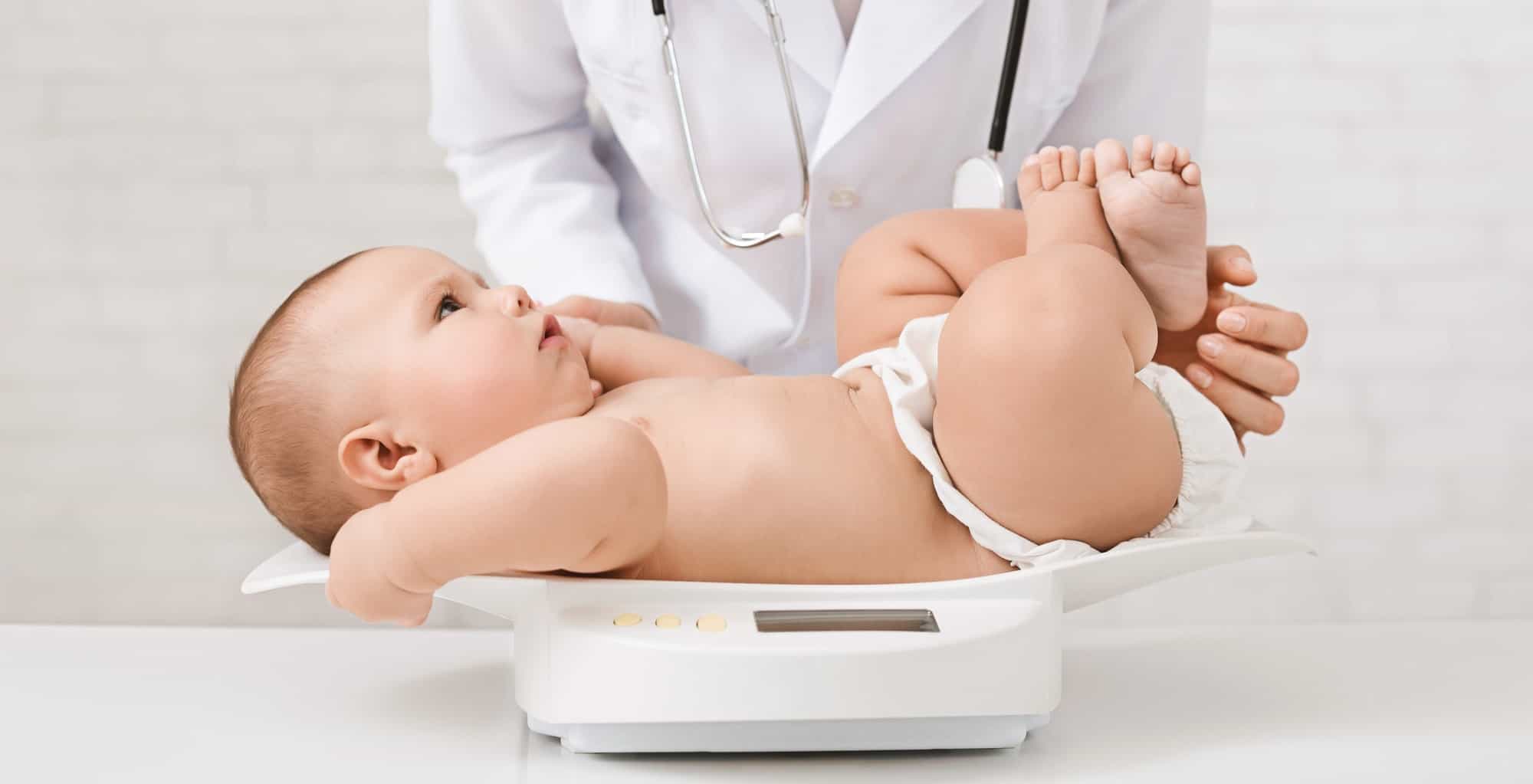My Cart(0)
Monitoring Your Baby's Weight Gain

Newborns grow by leaps and bounds into infancy. In fact, you’ll have a hard time believing that your tiny little baby is now reaching toddler stage. So, how do you know if your child is at a healthy weight? Are there concerns that come with your baby being underweight or slightly overweight? Know some of the best methods about how much weight should baby gain!
This guide provides insight on the subject of monitoring your baby’s weight gain after you’ve given birth. That way, you know exactly how your child compares to other children of a similar age.
What is the Average Birth Weight for Newborns?

The average birth weight for newborn babies depends on a couple of factors. The first is the nutrition the infant received while in the womb. The second is whether or not the child was a twin, triplet or quadruplet. Multiples play a role in the overall health of the children because the babies are sharing a space and nutrition.
If a baby is carried to full-term which is 38 to 40 weeks, they usually weigh six to nine pounds. If they are born prematurely, they likely will weigh significantly less because they haven’t had as much time to grow and develop.
Babies also lose some weight during their first weeks of life. It’s not unusual to see a bottle-fed baby losing 5 percent of their birth weight. Breastfed babies lose up to ten percent of their birth weight right after they are born.
How to Closely Monitor Your Baby’s Weight Gain?

Using a scale is the easiest way to know your baby’s weight. If you don’t have one available, you can ask for their weight in pounds at the time of their next doctor’s appointment. You can also note how many times they are wetting and soiling their diapers.
On average, you should be changing your baby’s wet diaper five to seven times a day. Soiled diapers occur less frequently with three to four diaper changes a day being the norm. You’ll know that your baby is getting enough hydration and nutrition based on the number of times they relieve themselves daily.

Another way to know that your child is gaining weight is to note how satiated they are once they’ve been fed. Babies love to eat and need a lot of nutrition in their earliest stages of life to grow and develop into healthy toddlers. Because they can’t walk or move yet, they aren’t burning as many calories as they will when they’re mobile.
You should notice a difference in the way your baby’s body looks and how heavy they feel once they do start putting on weight. If you have concerns about your child’s weight gain, let your paediatrician know so they can monitor the baby closely.
They’ll be able to give you sound medical advice on what to do to encourage better eating habits or more movement once the child does start crawling or walking.
Keep Track of Your Baby’s Weight Gain While Monitoring Your Weight Loss

Monitor your baby’s weight gain right away. That way, you know how well they are and if they’re getting adequate nutrition. By keeping close track of your baby’s weight, you’ll be able to identify any potential problems your child has as they grow and develop.
Take Care of Yourself
Your body changes a lot after giving birth, and sometimes this can lead to feelings of low self-confidence and frustration. You can take care of yourself by ensuring that you feel confident and beautiful.
It's important to care for your new family member, but don't forget to take care of yourself too. Bellefit's postpartum girdles and corsets can help you feel more in charge of your own body, and can speed the recovery process. With our design, you can look and feel your best in no time, and when you feel your best - so does your baby.

All the new moms would love to learn from your experiences and learning regarding the babies and weight gain. Let us hear back from you too!
unsubscribe at any time without costs.










